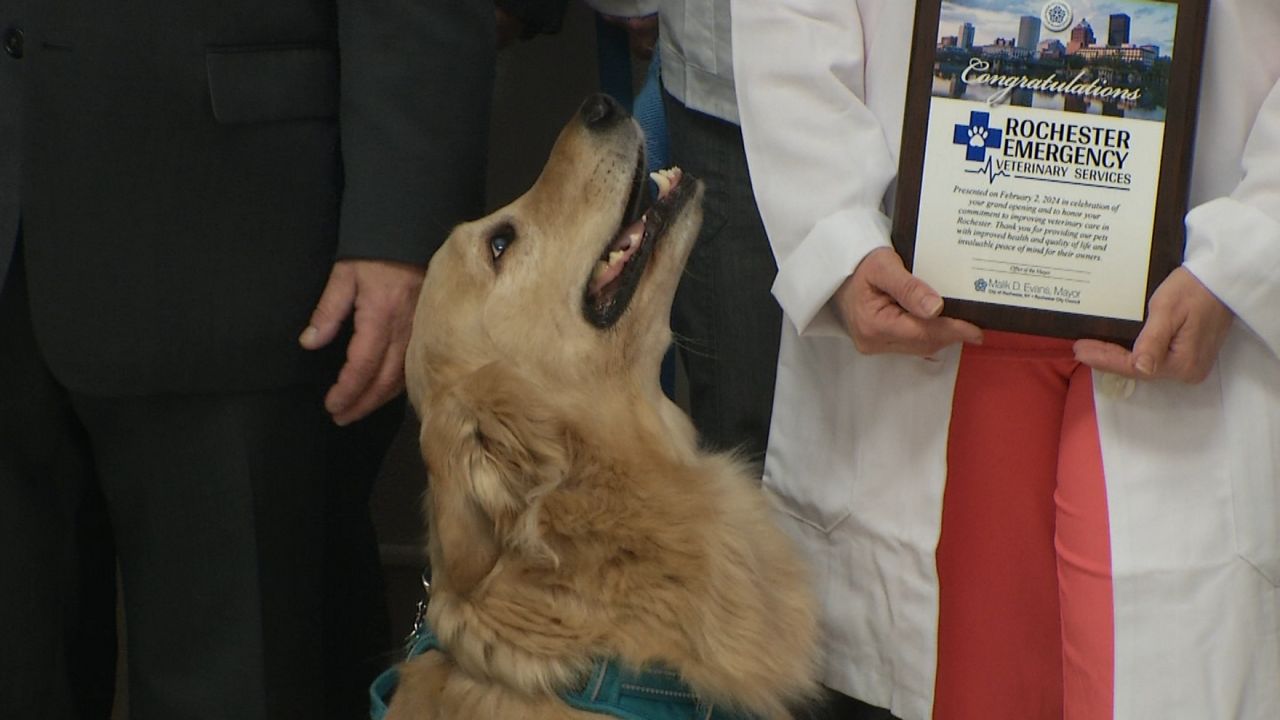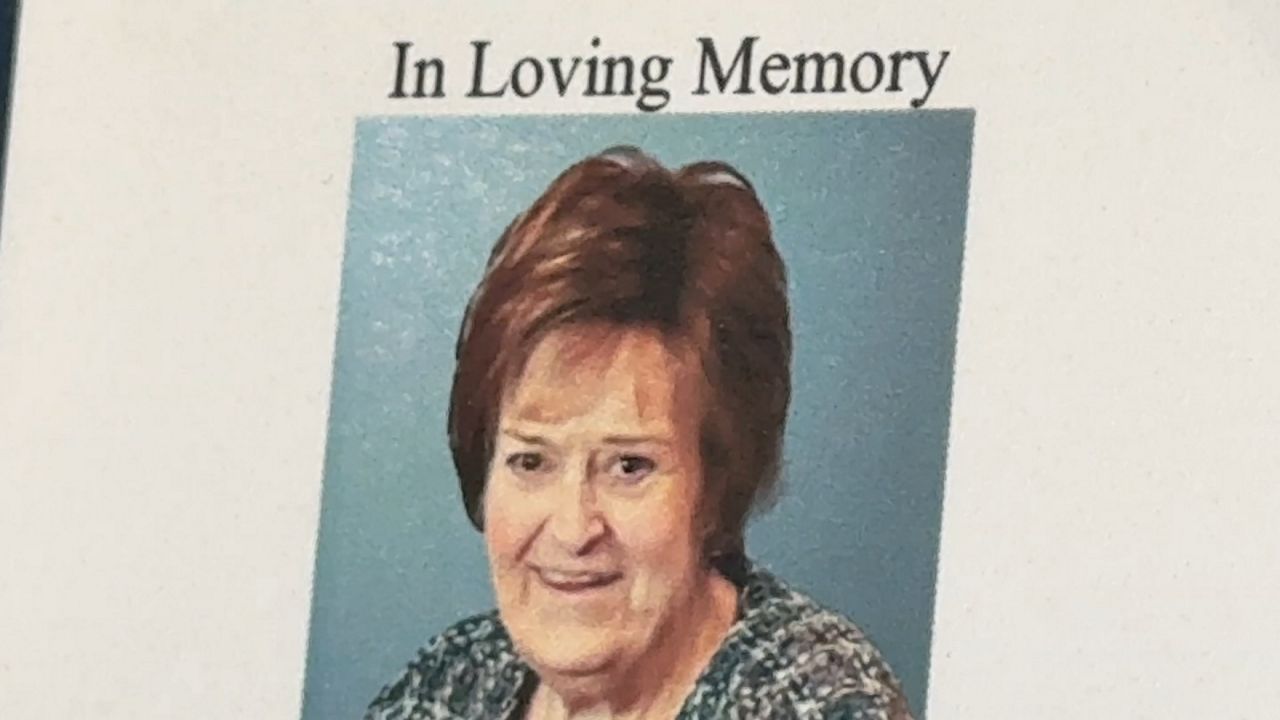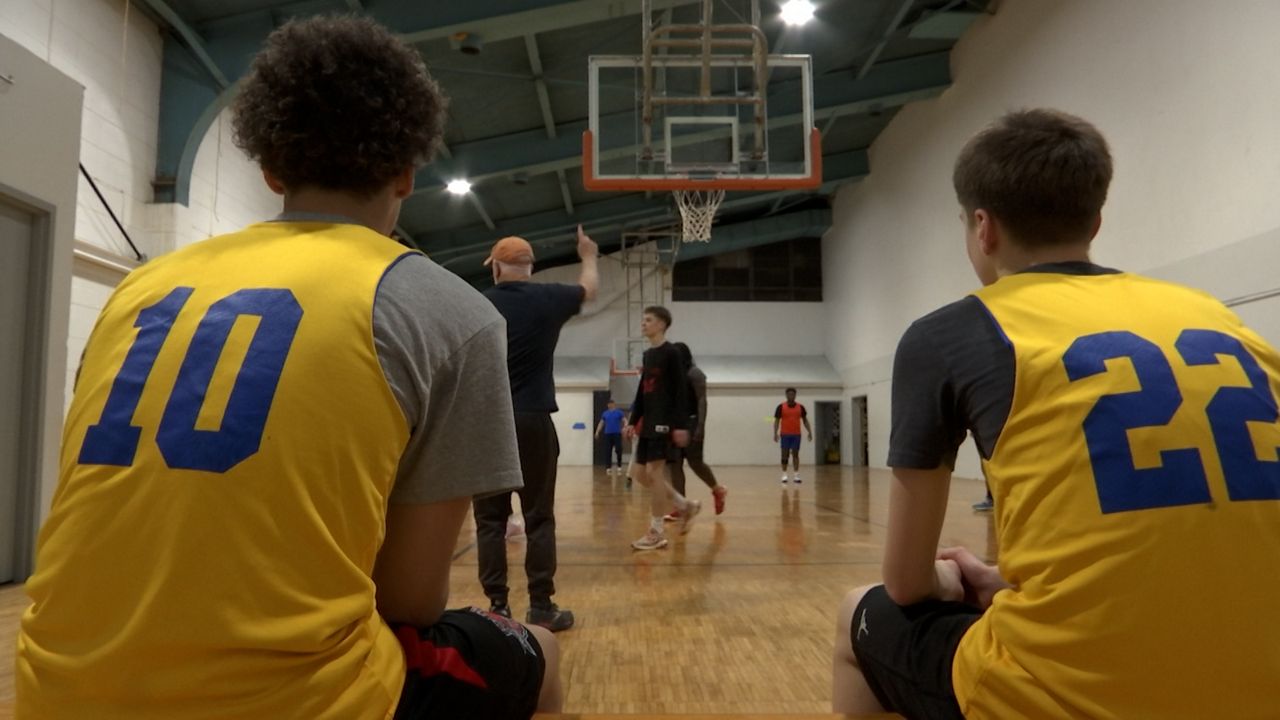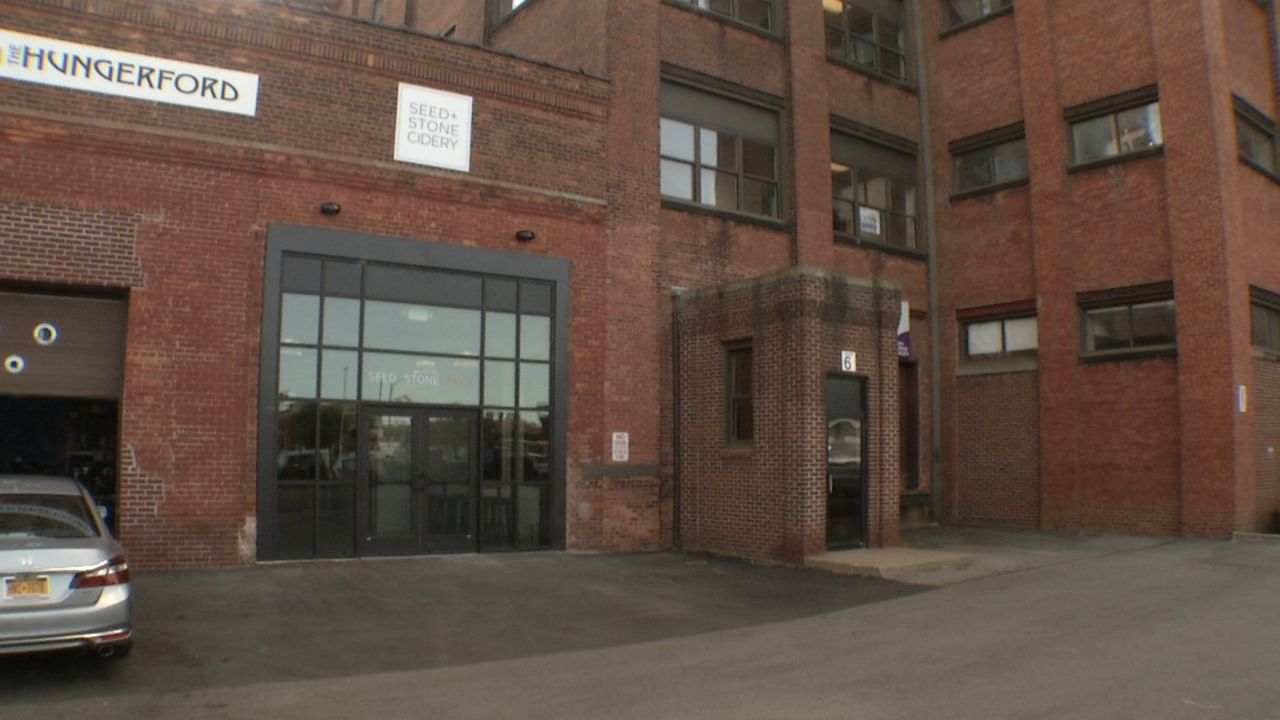It’s being called a first-of-its-kind phenomenon in the veterinary world.
After having his jaw removed to save his life, a puppy regrew the jaw.
Tyson is a 18-month-old French Bulldog who spent the bulk of his life undergoing surgery, hospitalization and recovery.
Tyson was born with a cleft palate at the Brockport Animal Hospital, where Melissa Forsyth works as a vet tech.
"The breeders ended up relinquishing him to me because they thought he would have a better chance with somebody in the field having to tube feed him every two hours and things like that because he couldn’t eat with a cleft palate," said Forsyth.
“I get a text message, 'I got a surprise coming home for you today' and she showed up with him in a cardboard box," said Mike Forsythe, Melissa's husband.
Melissa and Mike nursed Tyson through the early days, then Melissa discovered a tumor.
"The cleft palate probably saved his life because I wouldn’t be looking in his mouth so frequently checking on that, and that’s mainly why he did so well, is because we discovered the tumor so early," said Melissa.
The biopsy proved cancer, and the family headed to Cornell. Treatment would mean removing most of Tyson’s jaw.
A successful surgery led to the cancer being removed.
Months later, Tyson returned to Cornell for the repairing of the cleft palate.
"As they were feeling it, they felt like there was jaw there, so they ended up doing another CT scan and saw that it had grown back,” said Melissa. “It was crazy.”
“After the surgery they did a first scan so you could see it removed and everything, and then when we brought him back to get the cleft repaired, they felt the bone and did a second [scan]; they call it like an academic scan because it was so abnormal and unheard of,” said Mike.
“What was so shocking to us was that he regenerated the complete length of which we had removed, which had not really been seen or reported before," said Alexandra Wright, D.V.M. resident, Cornell Dentistry and Oral Surgery. "And the reason we were very excited at the time, when we realized that he had done so, was all of the complications that we had talked to the owner about for his long-term ability to use his lower jaw were now suddenly fixed, because he now had a very functional jaw compared to what he started with when he was born."
Those complications included no toys. Before the new chin came along, Tyson could not play with his toys, which has become a favorite event of his.
"He’s a little fighter; that’s how he got his name," said Melissa.
Tyson is now a case study with Cornell, saying he demonstrates the possibility of complete bone regeneration in dogs this young.










